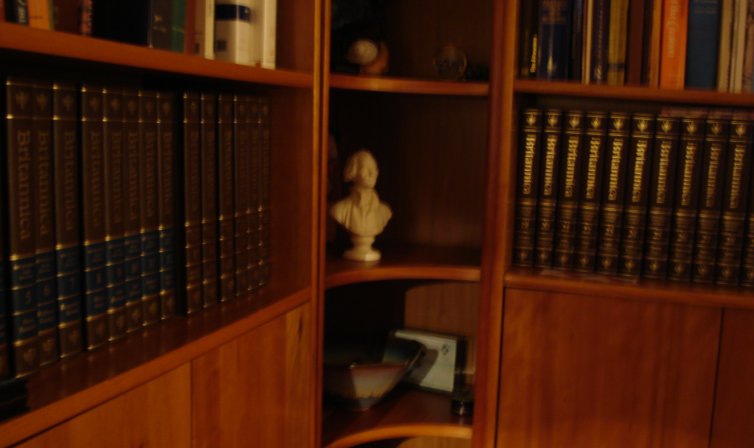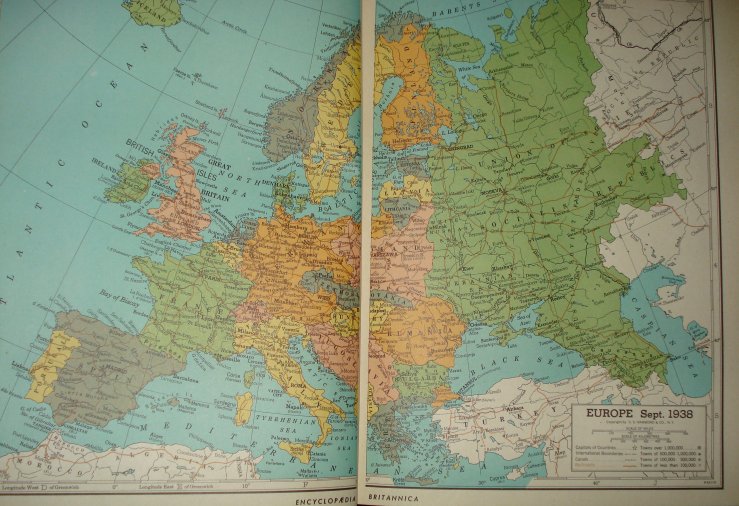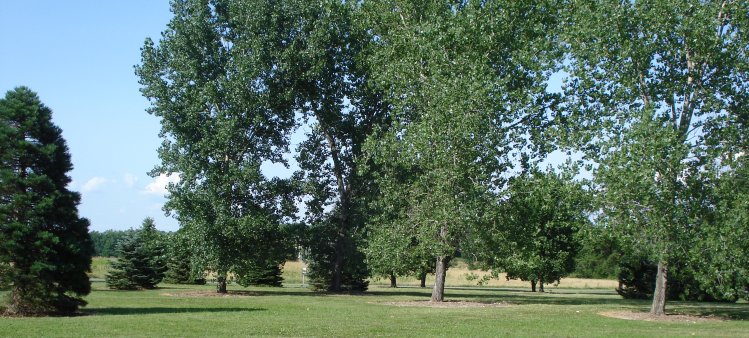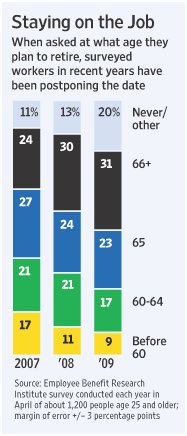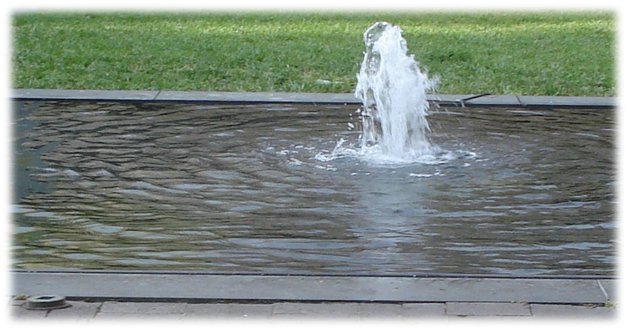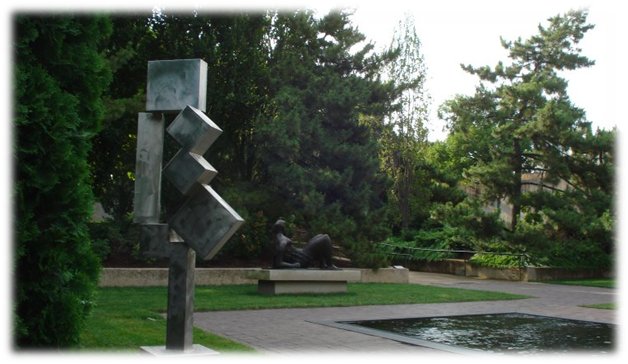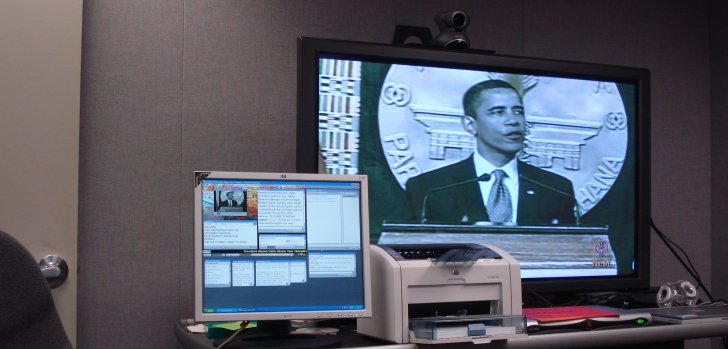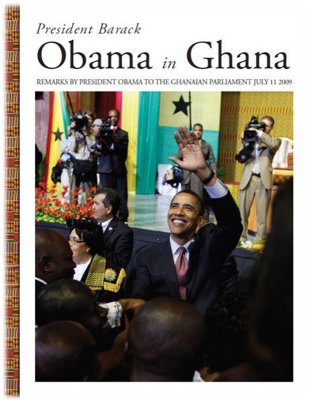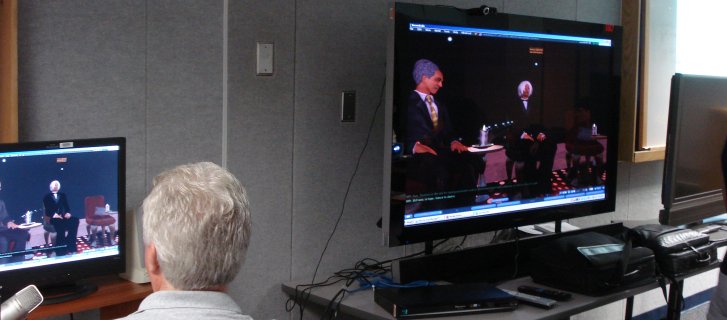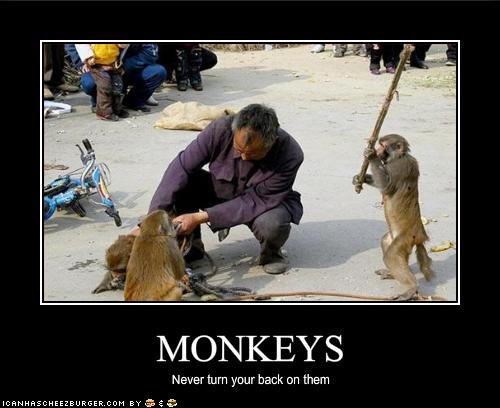Years of science fiction make big real-world advances look puny. All of us have seen the fantastically multimedia computers on Star Trek or the James Bond and have come to expect instantaneous processing time, perfect video delivery and trouble-free operation. Of course we know that the real world data systems don’t work like this, but even when we know the real world, it is the illusions we recall.
I thought about that at a briefing today. I saw a broadcast monitoring system that lets you to search broadcasts using key words, as well as set up permanent watch lists, much the same way you can do now for text. It monitors major satellite broadcasts and produces machine generated transcripts in original languages.
And I thought, “So what? No big deal.” But it is, actually, a big deal even if it looks a lot like what we imagined we had before. Consider the analogy of search engines. Think of how much better you can search with Google than you could with Lycos, Magellan, the aptly named “dogpile” or so many of the others whose names we forget. But all Google does is the same thing as the most primitive search engines; it just does it better. That is how progress is made, by making incremental improvements until at some point you have something new, but nobody notices.
Untethered imagination is much overrated. It is funny to hear people say that Leonardo da Vinci invented helicopters, tanks or submarines just because he imagined the concept and drew some unworkable sketches or that Jules Verne pioneered space travel because he wrote a book about going to the moon. Yet when a helicopter flies overhead, you could say, “NBD, da Vinci invented the thing nearly 500 years ago, it just didn’t fly; this is just a minor improvement.” And I hate that childish notion that this or that modern machine was “really” invented by ancient Africans, Arabs, Chinese, Greeks, Incas, Persians, Russians … Who cares?
It matters less who imagined something first than who make it work first and then who keeps improving it. It also matters who tells others about. If you make a great discovery, but nobody else knows about it, you really didn’t make a great discovery. You just indulged your idiosyncratic curiosity.
Returning to the subject at hand, the broadcast monitoring system takes the place of those bored guys that used to watch TV and take notes (Presumably, sales of coffee and cigarettes will decline.) The advantage is that the machine never sleeps or has to take a bathroom break. The disadvantage is that the machine doesn’t think or make free association. It only produces exactly what it is asked to give, although more sophisticated programs are allowing them to branch out with a kind of artificial intelligence.
The original language transcripts are good, the translations, not so good. They have some of the comical aspects we associate with mistranslation. However, retrieval is more important than perfection. Skilled human translators can make whatever changes necessary after the machine does the initial sorting.
The systems I saw can do Arabic, Spanish, Chinese, Persian and English. Bahasa, Hindi and Urdu are planned. It takes at least six months to “train” the program. They need enough of a sample. For example, if you let it go for only a short time, for example last week, you might have nothing but Michael Jackson stories. Your machine would have a strong vocabulary on plastic surgery, gloves, music videos and bizarre behavior by aging man-boys, but maybe not enough on more important topics.
The system is around 80% accurate, but it depends on who is talking and about what. It can pick up around 95% of what an anchorman says when he is speaking directly to the camera, but starts to decline when there are multiple participants in a conversation and/or when people start slipping into dialects or even idiolects.
It works a lot like Google for video and you could probably start using it in less than ten minutes. The hard part is to know what you want to get from the system and how to use it. Translation is more an art than a science. Of course, decision making requires even a greater use of judgment.
I think this is very promising for understanding big trends. As we get more data points to smooth out outliers and the quirks of special situation, we can start seeing the simpler patterns in the ostensible complexity. But despite the coolness of this technology, it provides essentially the same sort of service for video that a reasonably skilled user of Google can achieve with texts. Of course, while Google is very useful in finding information, we still have not really figured out how to use it as an analytical tool for audience research or evaluation.
Still not as cool as I saw on Star Trek many years ago. I suppose Leonardo da Vinci invented the concept.


